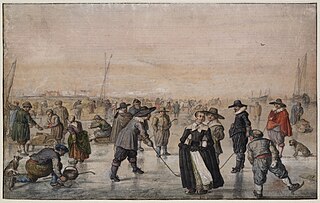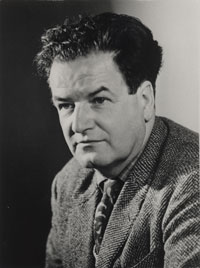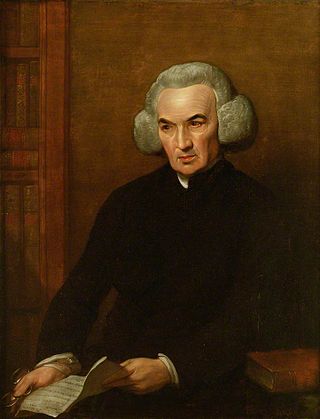Notes
- ↑ Profile at the Colombian College of Arts and Sciences.
- ↑ Contributor page at the ODNB.
Lois Green Schwoerer is an American historian of seventeenth century England and Elmer Louis Kayser Professor Emeritus of History at George Washington University. [1]
She has contributed four articles to the Oxford Dictionary of National Biography . [2]

The Glorious Revolution is the sequence of events that led to the deposition of James II and VII in November 1688. He was replaced by his daughter Mary II and her Dutch husband, William III of Orange, who was also his nephew. The two ruled as joint monarchs of England, Scotland, and Ireland until Mary's death in 1694. The Revolution itself was relatively bloodless, but pro-Stuart revolts between 1689 and 1746 caused significant casualties, while the political movement known as Jacobitism persisted into the late 18th century. William's invasion was the last successful invasion of England.

The 17th century lasted from January 1, 1601, to December 31, 1700 (MDCC).

The Bill of Rights 1689 is an Act of the Parliament of England that set out certain basic civil rights and clarified who would be next to inherit the Crown. It remains a crucial statute in English constitutional law.

The Petition of Right, passed on 7 June 1628, is an English constitutional document setting out specific individual protections against the state, reportedly of equal value to Magna Carta and the Bill of Rights 1689. It was part of a wider conflict between Parliament and the Stuart monarchy that led to the 1638 to 1653 Wars of the Three Kingdoms, ultimately resolved in the 1688-89 Glorious Revolution.

John Edward Christopher Hill was an English Marxist historian and academic, specialising in 17th-century English history. From 1965 to 1978 he was Master of Balliol College, Oxford.

Richard Price was a Welsh moral philosopher, Nonconformist minister and mathematician. He was also a political reformer, pamphleteer, active in radical, republican, and liberal causes such as the French and American Revolutions. He was well-connected and fostered communication between many people, including Thomas Jefferson, John Adams, George Washington, Mirabeau and the Marquis de Condorcet. According to the historian John Davies, Price was "the greatest Welsh thinker of all time".

King William's War was the North American theater of the Nine Years' War (1688–1697), also known as the War of the Grand Alliance or the War of the League of Augsburg. It was the first of six colonial wars fought between New France and New England along with their respective Native allies before France ceded its remaining mainland territories in North America east of the Mississippi River in 1763.

The Rye House Plot of 1683 was a plan to assassinate King Charles II of England and his brother James, Duke of York. The royal party went from Westminster to Newmarket to see horse races and were expected to make the return journey on 1 April 1683, but because there was a major fire in Newmarket on 22 March, the races were cancelled, and the King and the Duke returned to London early. As a result, the planned attack never took place.

Whiggism is a political philosophy that grew out of the Parliamentarian faction in the Wars of the Three Kingdoms (1639–1651). The Whigs advocated the supremacy of Parliament, tolerance of Protestant dissenters, and opposition to a "Papist" on the throne, especially James II or his descendants. It is associated with early conservative liberalism.

The Jacobite succession is the line through which Jacobites believed that the crowns of England, Scotland, and Ireland should have descended, applying primogeniture, since the deposition of James II and VII in 1688 and his death in 1701. It is in opposition to the legal line of succession to the British throne since that time.
John Trenchard was an English writer and Commonwealthman.
Jonathan Charles Douglas Clark is a British historian of both British and American history. He received his undergraduate degree at Downing College, Cambridge. Having previously held posts at Peterhouse, Cambridge and All Souls College, Oxford into 1996, he has since held the Joyce C. and Elizabeth Ann Hall Distinguished Professorship of British History at the University of Kansas.
John Coode is best known for leading a rebellion that overthrew Maryland's colonial government in 1689. He participated in four separate uprisings and briefly served as Maryland's governor (1689–1691) as the 1st Leader of the Protestant Associators.
Harold John Cook is John F. Nickoll Professor of History at Brown University and was director of the Wellcome Trust Centre for the History of Medicine at University College, London (UCL) from 2000 to 2009, and was the Queen Wilhelmina Visiting Professor of History at Columbia University in New York during the 2007–2008 academic year.
Steven Pincus is the Thomas E. Donnelly Professor of British History at the University of Chicago, where he specializes in seventeenth- and eighteenth-century British and European history.

The Toleration Act 1689, also referred to as the Act of Toleration, was an Act of the Parliament of England. Passed in the aftermath of the Glorious Revolution, it received royal assent on 24 May 1689.
Timothy J. G. Harris is an historian of Later Stuart Britain.
John Corwin Rule, was a widely respected historian of seventeenth- and eighteenth-century French history at Ohio State University from 1958 to 1995.
Maryland's colonial economic history is marked by a heavy reliance on the tobacco crop. Though it would remain a slave state until the end of the Civil War, it was not until the 1700s that labor began to drive agricultural production in the colony. The colonial-era would also see Maryland begin early industrialization and urbanization, experiment with different monetary systems, and make efforts to diversify its economy.
Awnsham Churchill (1658–1728), of the Black Swan, Paternoster Row, London and Henbury, Dorset, was an English bookseller and radical Whig politician who sat in the English and British House of Commons from 1705 to 1710.